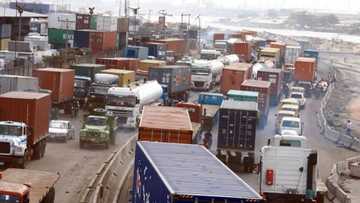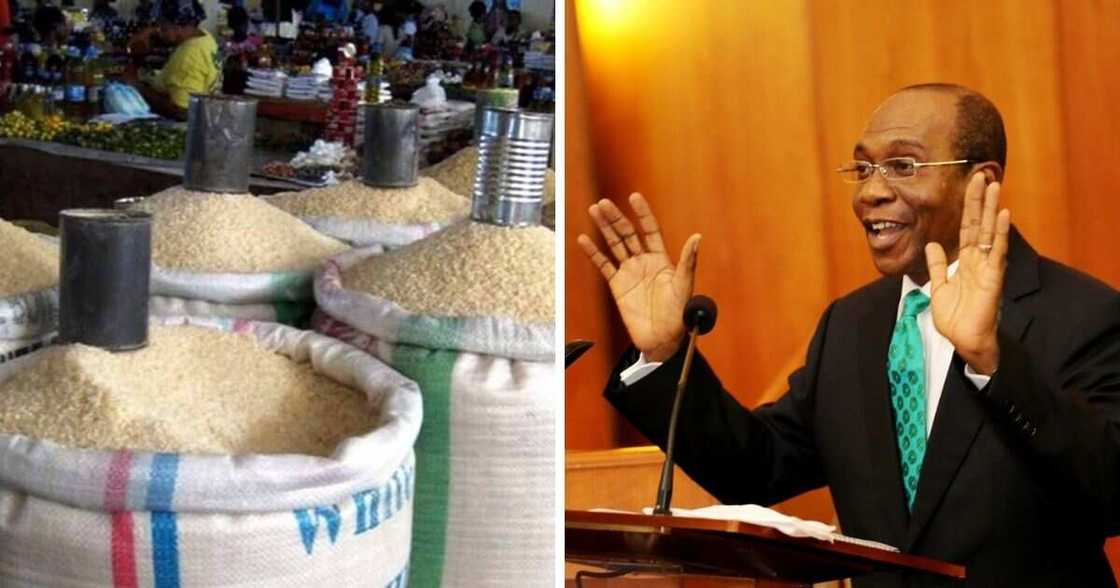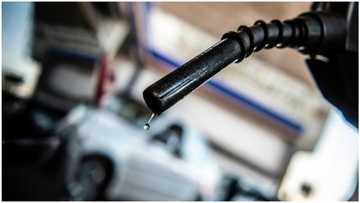Price of Rice Still High Despite N850bn Government Investment in Rice Farming
- Nigeria may soon have food crisis as the price of rice, a major staple in the country, remains high despite huge investments by government
- Farmers have said that rather than pumping such money into rice farming, which has yielded little result, the country should used the same amount for imports instead
- The farmers praised plans by the government to bring back the Growth Enhancement Scheme which allows government-farmers' partnership in rice farming
PAY ATTENTION: Click “See First” under the “Following” tab to see Legit.ng News on your Facebook News Feed!
Despite huge investment in rice farming by the Central bank of Nigeria under the aegis of the Anchors Borrowers Programme, the price of the staple remains extremely high in Nigeria.
The Anchors borrowers programme has come under great criticism by an agriculture expert who berated the government over the N850 billion pumped into the rice value chain, according to a report by the Guardian.

Read also
Report: It takes over N1 million to move a container from Apapa to Lagos mainland or it stays trapped

Source: UGC
The programme was launched in 2017 by President Muhammadu Buhari to reverse the negative food balance in the country.
The CBN had said farmers are defaulting in repaying the loan given to them under the programe. According to the apex bank, over N463 billion is being owed the bank by farmers under the programme.
PAY ATTENTION: Install our latest app for Android, read best news on Nigeria’s #1 news app
Criticisms trail programme
Kabiru Fara, the Nigeria President of Agro Input Dealers Association (NAIDA) has reasoned that if the funds spent by the Central Bank of Nigeria (CBN) investing in rice was spent on importing it, Nigerians will have rice at a much lower price.
The price of 50kg of rice is currently sold for between N25,000 and N27,000 while foreign rice is sold for between N30,000 and N32,000. Rice millers blamed the spike in the price of rice on the high cost of production and the absence of paddy rice.

Read also
Subsidy removal: Northern groups threaten protests, reject increase in petroleum pump price
They criticised the CBN for the allocation of N850 billion Anchor Borrowers’ Programme which did little to reduce the price of rice in the country.
While speaking with newsmen in Abuja, Fara said instead of spending so much money on one value chain with nothing to show, the government should have invested more in making sure that farmers accessed the agro-input at a much lower cost.
Bring back GES
Fara praised the government for bringing back the Growth Enhancement Scheme (GES) saying it will force down the price of food and make them available.
Muhammad Abubakar, the Minister of Agriculture and Rural Development, recently hinted at the plan to reintroduce GES with the support of the African Development Bank (AfDB).
Akinwunmi Adesina, the current AfDB president who was Nigeria Agriculture Minister, introduced the GES. It allows government to fund agro-inputs by 50 per cent, while the state and farmer share the remaining 50 per cent.

Read also
Can we just go back to using cowries? Basket expresses surprise all Naira notes together is less than $5
Fara said farmers would be more comfortable because farm inputs prices are rising, but with the GES, the farmers can get inputs at an reasonable price meaning Nigerian consumers will get things at cheap prices. all things being equal.
He argued that the central bank’s ABP focuses mainly on rice producers, while the GES centres on all value chains making it more impactful.
He said bringing back GES means a lot, because commercial banks have to come, producers, suppliers, agro-dealers, farmers’ associations have to come in so that they can agree on modalities of distributing the farm inputs.
Fara said in this new GES, they will ensure that quality inputs are delivered at various centres with the farmers’ preference in consideration.
Dollar rise to blame for high cost of rice
Legit.ng has reported that the President of Nigerian Rice Farmers Association, Aminu Goronyo, has blamed the rise in dollar and weakened naira for the high cost of locally produced rice.
Goronyo said as the dollar rate rises over the years, farmers have had to spend more on fertilizers, and as the cost of production increases, the cost of rice is expected to go up as well.
In 2015, a bag of rice was about N7,500, but five years later, the cost of the grain has risen to about N30,000 in 2021 - rising by 300% within the period
Source: Legit.ng


